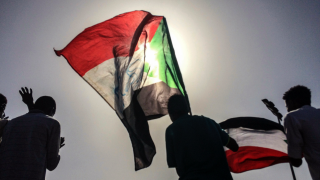Last week, more than a hundred diplomats closely linked to former President Omar al-Bashir were expelled from office by Sudan’s transitional government. The move was initiated by the Empowerment Removal Committee (ERC), which aims to dissociate the ousted leader from Sudan’s political and economic life.
The Chairman of the Sudanese Transitional Sovereignty Council, Abdel Fattah Al-Burhan, in November 2019 ordered the formation of the ERC to fight corruption and recover funds looted during the three-decade rule of the ousted president. The committee is saddled with the responsibility of giving Sudan a fresh political start that would translate into an economy devoid of anything al-Bashir.
According to Mohamed al-Faki, the Deputy Head of the Committee, 109 ambassadors, diplomats and administrators were “fired from the Ministry of Foreign Affairs, and those were appointed through political and social empowerment.” He recently made the statement at a press conference in the country’s capital, Khartoum.
Further commenting on the event, Taha Othman, a representative of the Forces of Freedom and Change in the committee, said that some of the diplomats were personally appointed by the former president and others were picked through his now-dissolved National Congress Party.
This is a part of several measures the government has taken lately towards restoring the credibility and integrity of Sudan’s politics, in the face of stiff economic restrictions which the al-Bashir regime incurred from the international community.
Early last month, the ERC announced the dissolution of Sudan’s Central Bank’s board. Although Central Bank Governor Badr Eldin Abdelrahim was retained in office, a new board was slated to be created. The ERC further dissolved the board of 11 state-owned banks with a promise to create new ones devoid of al-Bashir. Eight managers of these banks were also fired.
Also in February, the government and rebel group agreed to hand over the ousted President and four others to the International Criminal Court (ICC) for legal proceedings over the crimes which took place in Darfur between 2003 and 2010. The ICC had retained the name of al-Bashir and four other suspects on their list in 2019, for crimes against humanity during the Darfur conflict which saw the killing and oppression of many black Sudanese by a majority Arab government.
In what could be considered a significant event in its bid to restore foreign ties, German President, Frank-Walter Steinmeier, last week paid a two-day visit to the North African country and had a high-level meeting with the transitional government and key groups in the economy. The meeting was targeted at discussing the progress of relations between the two countries and ways to develop them further during the coming period.
These decisive steps by the transitional government could help improve Sudan’s image abroad and possibly begin to pave the way for the renewal of economic ties with the international community, experts say.
Steinmeier and his delegation were scheduled to make field visits to a number of infrastructural and economic projects, particularly the electric power sector. This marks the most high-profile Western visit to Sudan in years.








